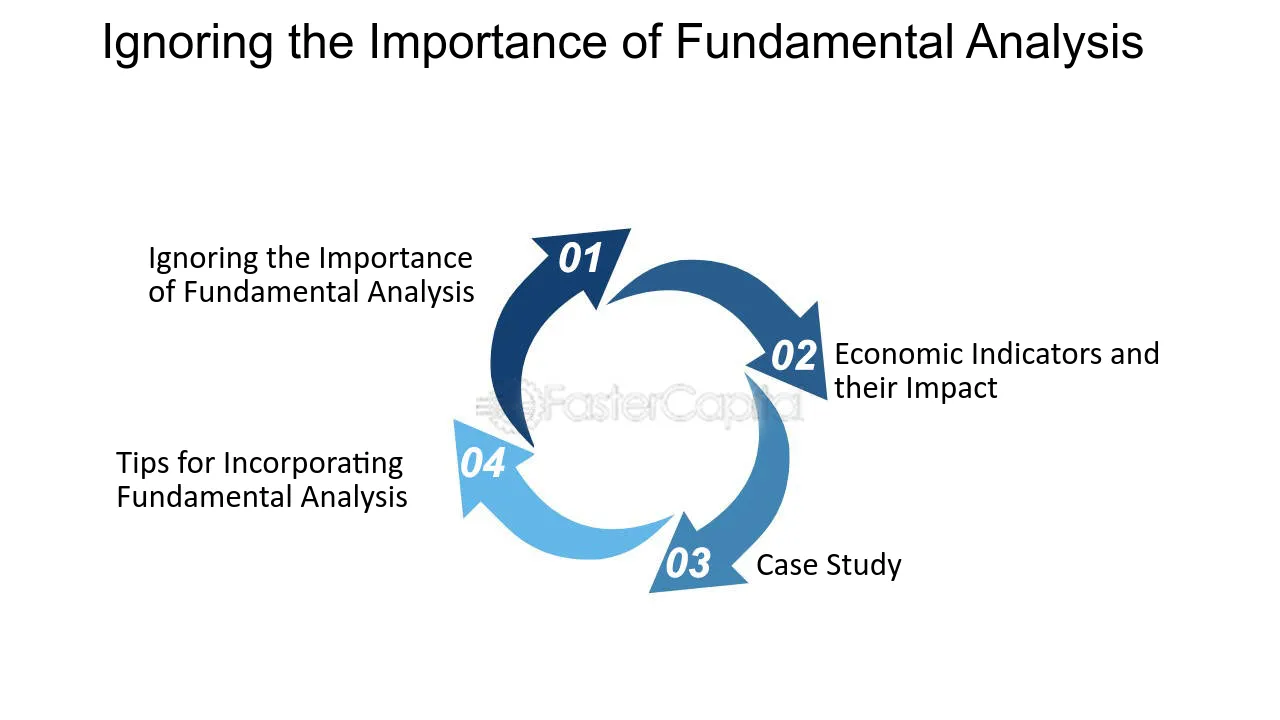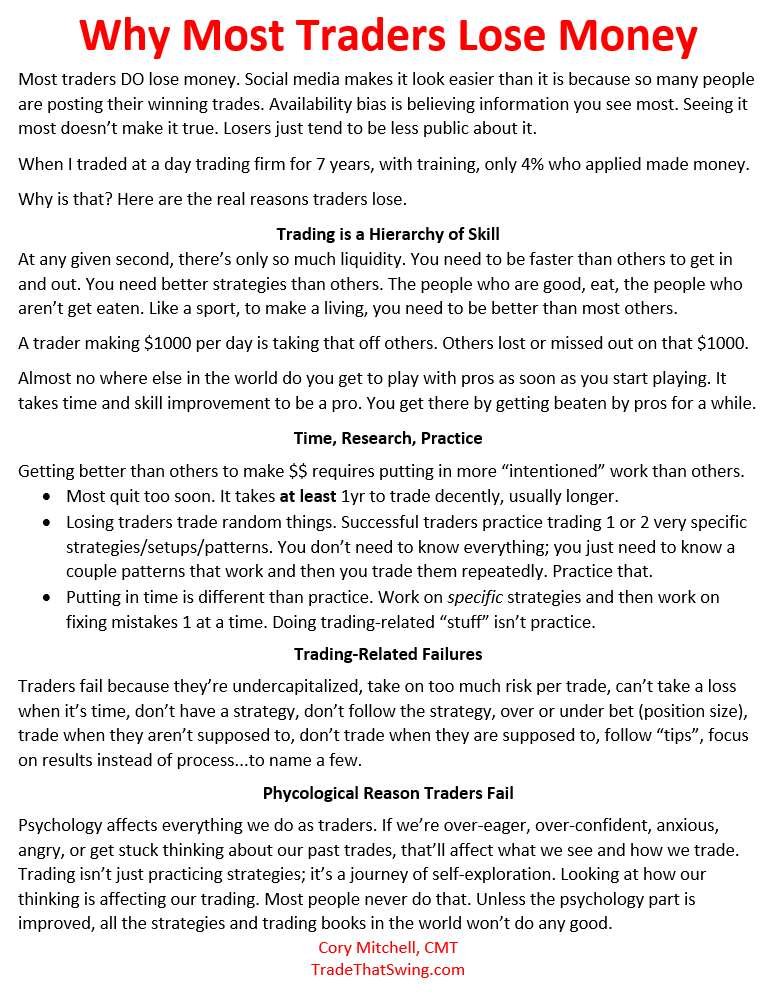Did you know that 90% of Forex traders end up losing money? It's almost as if the market has a sense of humor! In the fast-paced world of Forex day trading, avoiding common pitfalls is crucial for success. This article dives into the frequent mistakes traders make, from emotional trading and neglecting risk management to the dangers of over-leveraging and unrealistic profit expectations. We also explore the importance of having a solid trading plan, conducting market research, and maintaining a trading journal. By understanding these key points, traders can enhance their strategies and improve their chances of success in the Forex market. For deeper insights and guidance, turn to DayTradingBusiness for expert advice on mastering your trading journey.
What are the most common mistakes in Forex day trading?
The most common mistakes in Forex day trading include:
1. Lack of a Trading Plan: Many traders dive in without a clear strategy, leading to impulsive decisions.
2. Overleveraging: Using too much leverage can amplify losses and wipe out accounts quickly.
3. Ignoring Risk Management: Failing to set stop-loss orders can result in significant losses.
4. Emotional Trading: Letting fear or greed drive decisions often leads to poor outcomes.
5. Neglecting Market Analysis: Relying solely on tips or news without thorough analysis can result in bad trades.
6. Overtrading: Taking too many positions can increase transaction costs and reduce profitability.
7. Skipping Education: Not investing time in learning can lead to repeated mistakes and missed opportunities.
Avoid these pitfalls to improve your Forex day trading success.
How can emotional trading lead to losses in Forex?
Emotional trading in Forex can lead to significant losses due to impulsive decisions driven by fear or greed. When traders let emotions dictate their actions, they often ignore their strategies, leading to overtrading or holding onto losing positions. For example, fear of missing out might push someone to enter a trade without proper analysis, while panic selling can result in locking in losses. Additionally, emotional responses can cloud judgment, causing traders to deviate from their risk management rules. Ultimately, this lack of discipline can erode capital and lead to a downward spiral of poor performance.
Why is it important to have a trading plan in Forex day trading?
A trading plan is crucial in Forex day trading because it provides structure and discipline. Without a plan, traders often make impulsive decisions based on emotions, leading to significant losses. A well-defined trading plan outlines entry and exit strategies, risk management, and profit targets, helping traders stay focused and consistent. It also minimizes the impact of market noise and enhances overall trading performance. In short, a trading plan is essential for making informed decisions and achieving long-term success in Forex day trading.
What are the risks of over-leveraging in Forex trading?
Over-leveraging in Forex trading increases the risk of significant losses. It can lead to margin calls, forcing you to close positions at unfavorable prices. This can wipe out your trading capital quickly. Additionally, over-leveraging reduces your ability to manage risk effectively, making it harder to recover from losing trades. You may also become emotionally driven, compounding poor decision-making. In summary, while leverage can amplify profits, it equally amplifies losses, making risk management essential in Forex trading.
How does neglecting risk management affect Forex traders?
Neglecting risk management can lead to significant losses for Forex traders. Without proper risk controls, traders may over-leverage their positions, increasing the chance of margin calls. Emotional trading can also occur, leading to impulsive decisions that deviate from their strategy. Additionally, failing to set stop-loss orders can result in catastrophic losses, wiping out account balances. Ultimately, ignoring risk management creates an unstable trading environment, making it difficult to sustain long-term profitability.
Why is it crucial to avoid chasing losses in Forex?
Chasing losses in Forex is crucial to avoid because it often leads to larger financial setbacks. When traders try to recover lost money quickly, they may make impulsive decisions, increasing their risk exposure. This behavior can cause emotional stress and cloud judgment, leading to a cycle of poor trades. Instead, sticking to a disciplined trading plan helps maintain a clear strategy and reduces the likelihood of deeper losses. Focus on consistent, informed trading rather than attempting to recover losses immediately.
What role does lack of market research play in trading mistakes?
Lack of market research leads to uninformed trading decisions, increasing the risk of losses. Traders may enter positions based on emotions or speculation rather than data, resulting in poor timing and missed opportunities. Without understanding market trends, economic indicators, and geopolitical factors, traders are more likely to misinterpret price movements. This oversight can lead to overtrading, inadequate risk management, and ultimately significant financial setbacks.
How can ignoring economic indicators impact Forex trading?

Ignoring economic indicators can lead to significant losses in Forex trading. Without understanding key data like interest rates, employment figures, and GDP growth, traders may misinterpret currency movements. This oversight can result in poorly timed trades and increased exposure to volatility. For instance, a trader who disregards a central bank's interest rate announcement might hold onto a losing position, unaware of an impending currency devaluation. In essence, neglecting these indicators diminishes a trader's ability to make informed decisions, ultimately harming their profitability.
Why do traders fail to stick to their strategies in Forex?

Traders often fail to stick to their strategies in Forex due to emotional decision-making, lack of discipline, and overtrading. Fear and greed can lead to impulsive trades, causing them to deviate from their planned strategies. Additionally, traders may not adequately test their strategies or adapt them to changing market conditions, resulting in frustration and abandonment. Poor risk management also contributes, as traders might chase losses instead of following their original plan. Lastly, distractions and external pressures can derail focus, making it hard to execute strategies consistently.
What are the consequences of not keeping a trading journal?
Not keeping a trading journal can lead to several consequences in Forex day trading. You miss out on identifying patterns in your trades, making it hard to recognize what strategies work. Without documentation, you can't accurately assess your performance, leading to repeated mistakes. Emotional trading becomes more likely, as you lack the data to make rational decisions. Additionally, you forfeit the opportunity for continuous improvement, as reflection on past trades is essential for growth. Overall, neglecting a trading journal limits your potential for success in Forex trading.
How does trading without a clear goal lead to mistakes?
Trading without a clear goal can lead to mistakes because it creates confusion and impulsive decisions. Without defined objectives, traders may chase losses, overtrade, or deviate from their strategies. This lack of direction can result in emotional trading, where fear or greed dictates actions rather than a disciplined approach. Consequently, the absence of specific targets makes it hard to measure success or adjust tactics, leading to consistent errors and potential losses in Forex day trading.
## What are the common mistakes to avoid in Forex day trading?
Common mistakes in Forex day trading include over-leveraging, not having a trading plan, failing to manage risk, letting emotions dictate decisions, and neglecting to keep up with market news and analysis.
Learn more about: Understanding Forex Day Trading Markets
Learn about Common Mistakes in Day Trading Scalping and How to Avoid Them
Why is it important to understand your trading style in Forex?

Understanding your trading style in Forex is crucial because it shapes your strategy, risk tolerance, and decision-making process. It helps you identify which trades align with your personality and lifestyle, reducing emotional stress. Recognizing your strengths and weaknesses allows you to avoid common mistakes like overtrading or chasing losses, leading to more disciplined trading. Tailoring your approach enhances consistency and improves your chances of long-term success.
What common pitfalls arise from following the crowd in Forex trading?
Common pitfalls of following the crowd in Forex trading include:
1. Herd Mentality: Jumping on trends can lead to buying high and selling low as emotions drive decisions.
2. Lack of Strategy: Relying on others often results in a poor personal trading plan and hasty choices without analysis.
3. Overtrading: Fear of missing out can push traders to enter too many positions, increasing risk and exposure.
4. Ignoring Risk Management: Following popular trades can lead to neglecting stop-loss orders, amplifying potential losses.
5. Delayed Reactions: By the time the crowd acts, it may be too late to capitalize on opportunities, missing ideal entry points.
Avoid these traps by sticking to a well-researched strategy and making independent trading decisions.
How can unrealistic profit expectations harm Forex traders?
Unrealistic profit expectations can lead Forex traders to take excessive risks, often resulting in significant losses. When traders aim for unattainable gains, they may over-leverage their positions, increasing the chances of margin calls. This mindset can also cause emotional decision-making, where fear and greed drive trades rather than strategy. As a result, traders might neglect proper risk management, leading to a higher likelihood of blowing their accounts. Ultimately, setting realistic profit targets fosters disciplined trading and sustainable growth.
Why should traders avoid trading without proper education?
Traders should avoid trading without proper education because it increases the risk of significant losses. Lack of knowledge can lead to poor decision-making, such as entering trades impulsively or misunderstanding market signals. Without education, traders may fail to develop a solid strategy, leading to inconsistent results. Understanding risk management is crucial; uneducated traders often overlook this, risking more than they can afford. Additionally, educated traders can better analyze market trends, making informed decisions that enhance their chances of success in Forex day trading.
How does poor time management contribute to Forex trading errors?
Poor time management leads to Forex trading errors by causing traders to miss crucial market opportunities, resulting in late entries or exits. When traders rush decisions due to inadequate planning, they often overlook important analysis or fail to stick to their trading strategies. This can lead to impulsive trades based on emotions rather than data, increasing the likelihood of losses. Additionally, without proper scheduling, traders might ignore critical news events, resulting in unexpected volatility that could have been anticipated. Overall, poor time management disrupts discipline and increases the chances of costly mistakes in Forex day trading.
Conclusion about Common Mistakes in Forex Day Trading
In Forex day trading, avoiding common mistakes is essential for long-term success. Emotional trading can quickly lead to losses, underscoring the importance of a solid trading plan. Over-leveraging and neglecting risk management increase vulnerability, while chasing losses can spiral into further issues. A lack of market research and ignorance of economic indicators can severely impact trading decisions. Sticking to a well-defined strategy and maintaining a trading journal are vital for tracking progress and refining approaches. Understanding your trading style and avoiding crowd mentality can help set realistic profit expectations. Education and effective time management are crucial for minimizing errors. By recognizing and addressing these pitfalls, traders can enhance their chances of success in the Forex market. For deeper insights and guidance, consider leveraging the expertise of DayTradingBusiness.
Learn about Common Mistakes in Day Trading Momentum Strategies
Sources:
- Utilizing artificial neural networks and genetic algorithms to build an ...
- Unraveling the Dynamics of SPY Trading Volumes: A ...
- Judgment day: Algorithmic trading around the Swiss franc cap removal
- Liquidity in the global currency market - ScienceDirect
- Machine learning for cryptocurrency market prediction and trading ...